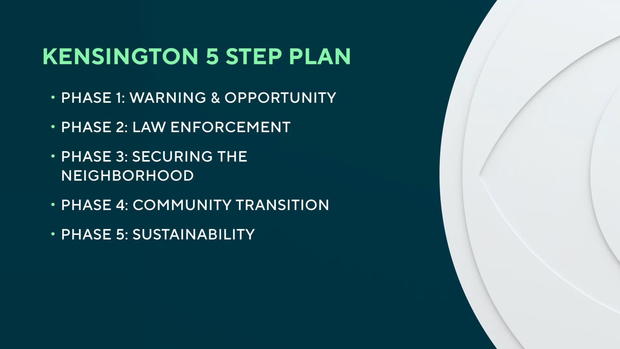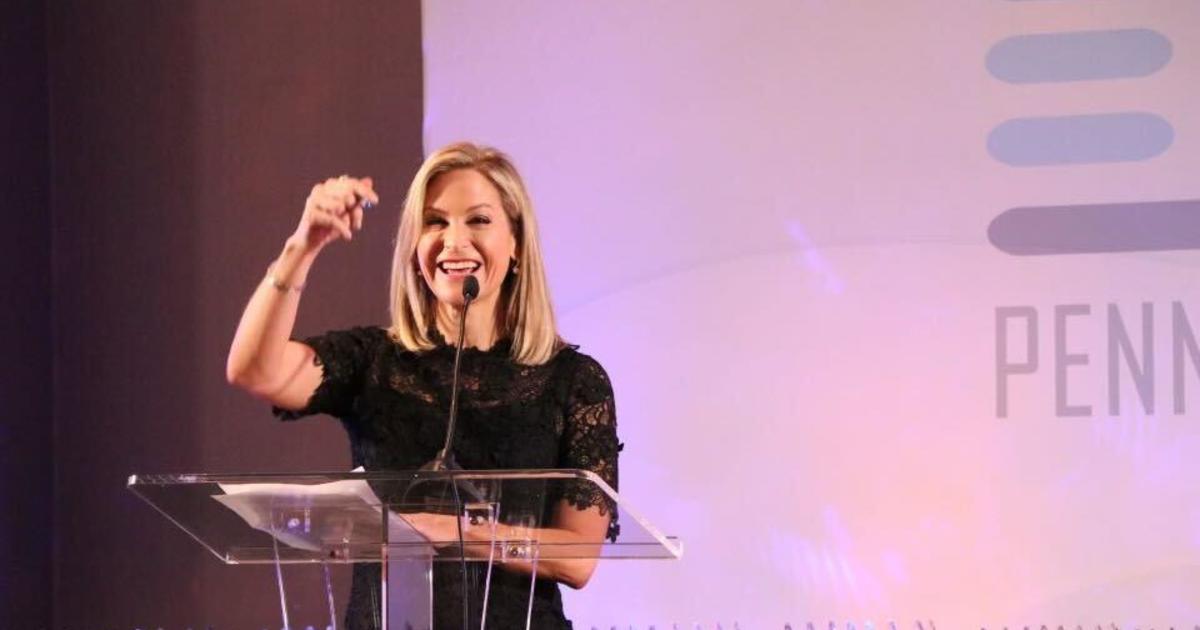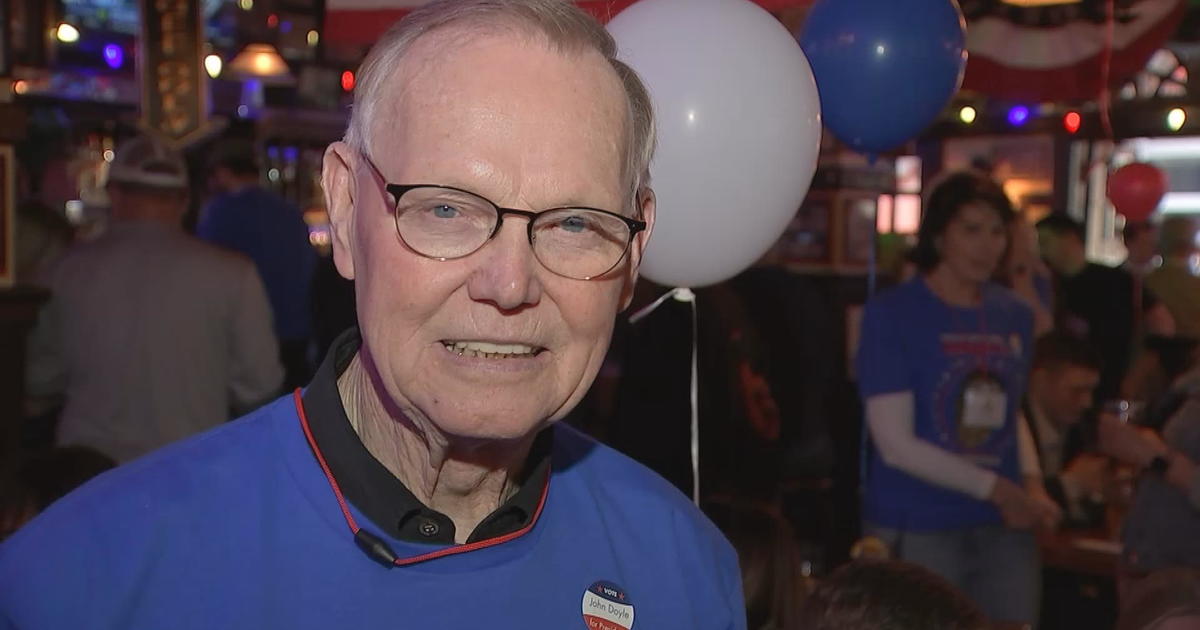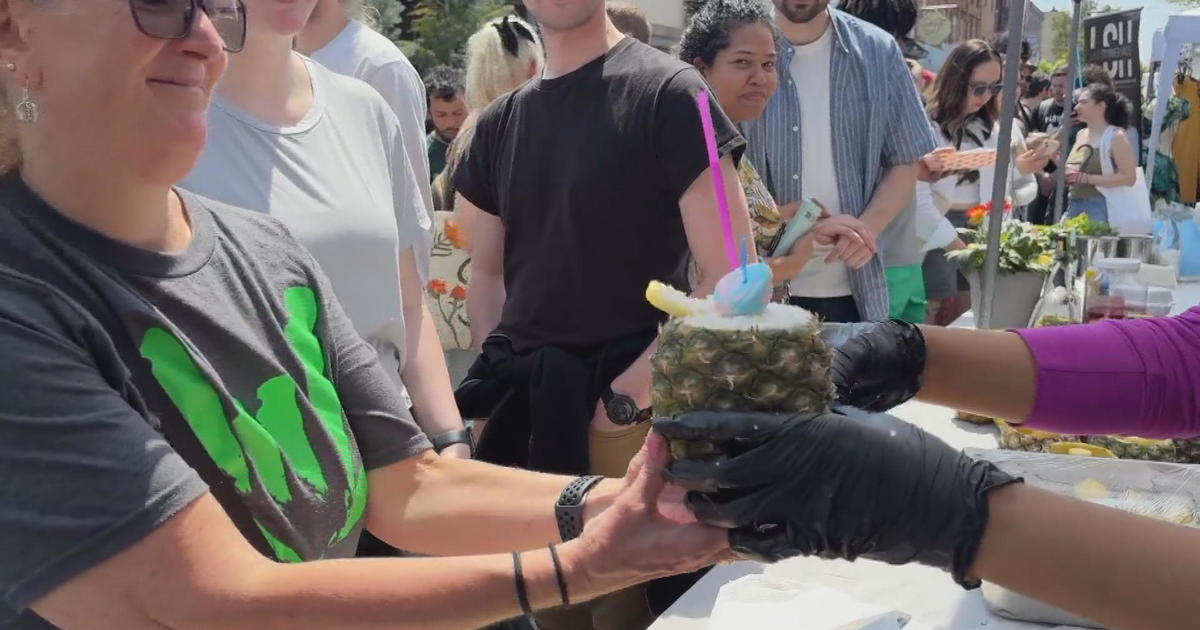Philadelphia community groups want more details on city's 5-step Kensington plan
PHILADELPHIA (CBS) - The City of Philadelphia now has a plan to tackle long-standing issues in the Kensington neighborhood. It's home to numerous homeless encampments and is one of the largest open-air drug markets on the East Coast.
"Change is on the way," announced Mayor Cherelle Parker Thursday at Conwell Middle School in the neighborhood.
Phase 1 of the plan, titled "Warning and Opportunity," will give warnings to people living on the street, and offer them treatment and housing options.
The plan then moves into the "Law Enforcement" phase. This will feature a heavy police presence, where officers will carry out warrant sweeps, and focus on drug sales and quality-of-life crimes.
That's followed by "Securing the Neighborhood" in Phase 3. Police will secure the blocks cleared in Phase 2, and city services will be brought in to beautify the areas.
Phase 4 brings "Community Transition." City officials say it will "focus on collaborative work between the city and residents, business owners, and the community at large." The final phase is "Sustainability," which will see a redistribution of police resources while maintaining a police presence in Kensington.
Mayor Parker says the plan was crafted, in part, by hearing from residents.
"The voices of the people who live here are the voices that we will hear most," said Parker on Thursday.
But one day later, people who spoke with CBS News Philadelphia and live and work in Kensington had a lot of questions.
"I'm a little perplexed," said Carl Day, the Pastor at Culture Changing Christians who has long worked in Kensington. "Not a lot of things make sense."
While Day credited Parker for her "zeal" in working to tackle the issues in Kensington, he noted the plan doesn't point out what will happen to people who refuse to leave the streets. He says that leaves the door open for them to be placed in jail, raising Philly's already high prison population, or to be pushed to other areas of the city.
"Where do they go?" asked Day. "Not in Kensington, but where are they ultimately going to land? Whose community?"
Patrice Rogers runs the nonprofit Stop the Risk in Kensington. Originally, she provided tiny homes to people on the street, giving them a place to stay and working to keep them clean. But Rogers tells us the city told her she couldn't house people on the lot. Now, she's shifted to triage and giving people a place to go during the day.
Rogers attended Thursday's event with Parker and says she didn't understand why city leaders weren't talking with organizations like hers, which are on the ground every day in the neighborhood.
"I don't believe it's going to work if you're only going to work it by yourself. You can only work it if we work together," says Rogers.
Business owners like Nicole Moy were also looking for more detail in the plan.
"I love that she has a plan," said Moy. "I would like to know more details about how that plan is going to take place."
Moy opened The Bridge Studio on Kensington Avenue three years ago looking to highlight emerging artists and shine a light on the good happening in Kensington. She's hoping the plan can clear out some of the trouble, but also keep a focus on what residents in the community need.
There was one piece of the plan that also caught her attention.
"I like that we're going to bring more officers, but I do want to make sure or think it's important that we bring people that have the experience and knowledge and expertise to combat this issue," Moy said.
Police Commissioner Kevin Bethel said Thursday the plan would begin sometime after the next 30 days, but didn't release a clear timeline on how long each phase would last. As it unfolds, community groups in the area hope they can be more involved.
"We have to open the door for a lot of innovation and really making sure we're including all kinds of voices," Day said.
"I'm here all days. I'm actually boots on the ground. I know what this community needs. I know what this community is suffering from," Rogers said.




